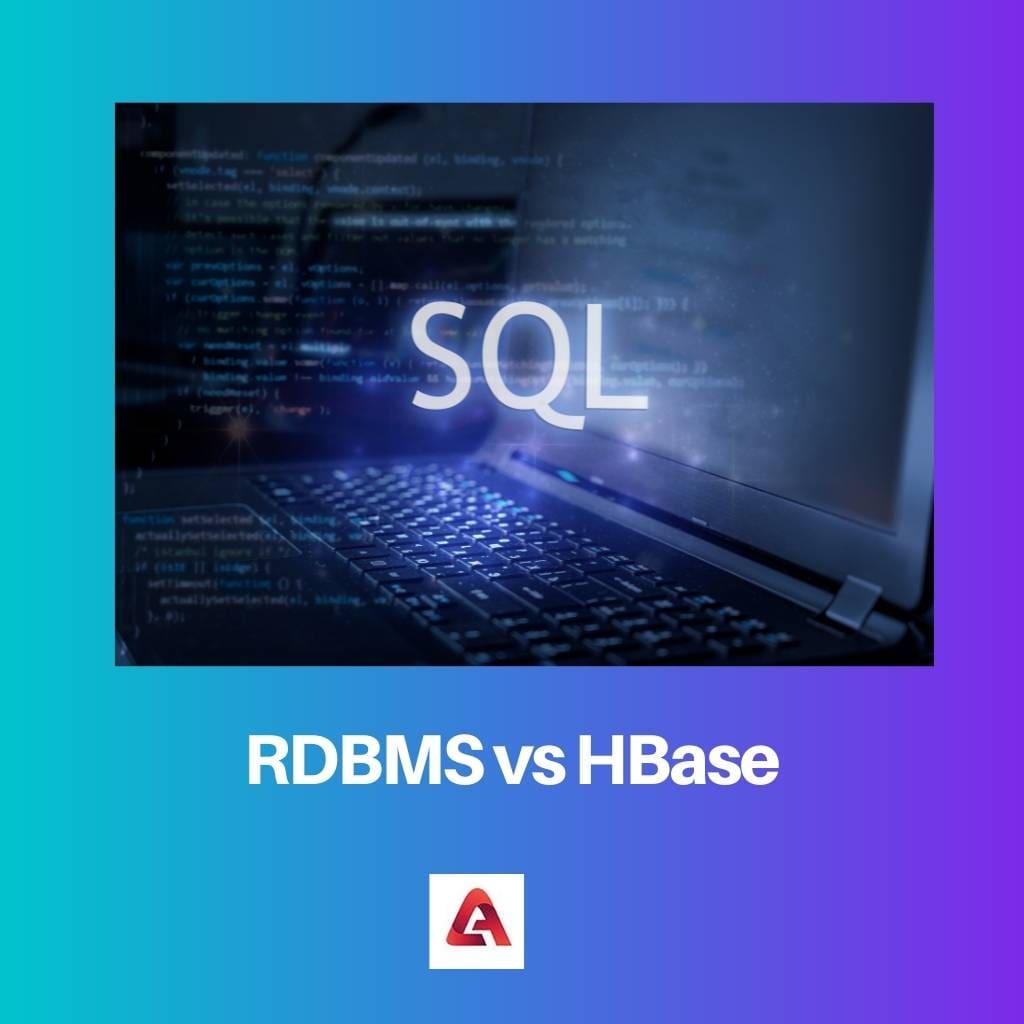Data is managed in a database to keep it safe and secure. And then, to manage these databases, a management system is required that is called Database Management System.
Both of them are types of Database Management systems used for securing and keeping databases in an organized manner.
Key Takeaways
- RDBMS stands for Relational Database Management System and uses a table-based structure.
- HBase stands for Hadoop Database and uses a column-family-based structure.
- RDBMS is suitable for structured data, while HBase is for unstructured data.
RDBMS vs HBase
RDBMS (Relational Database Management System) is a type of database management system that organizes data into tables and uses SQL (Structured Query Language). HBase is a NoSQL, non-relational database management system that is optimized to handle large volumes of data in a distributed environment.

Relational Database Management System is based on a model introduced by E.F. Codd. It secures the related data along with some advantageous features such as security, integrity, consistency, and accuracy of the data.
It has several pros over traditional database systems. It is designed to handle all types (structured, semi-structured, and even unstructured) of data.
Comparison Table
| Parameters of Comparison | RDBMS | HBase |
|---|---|---|
| SQL | It requires this | Does not require |
| Schema | Fixed schema | No fixed schema |
| Scalable | Not scalable | Scalable |
| Nature | Static | Dynamic |
| Retrieval of data | Slower | Faster |
What is RDBMS?
It is a system that is a collection of programs that help to create and update any interaction with a relational database.
It also supports multi-concert users to use the database along with maintaining the information’s integrity. It supports DBAs, which is helpful in monitoring the databases.
Except for all the functions and features it has there are some extra advantages of this such as:
- Flexibility: as compared to other systems, the process of updating data is far simpler, as data is not required to be updated in several places; it has to be updated in one place only.
- Maintenance: maintenance of data is easier, not this data can also be controlled without much effort easily.
- Data structure: It is an easier and most effective way of organizing the data. Entering new data is also easier.
What is HBase?
HBase is built on Hadoop and is a column-oriented system. Data is kept in key-value format due to its sets of tables. Columns of any number can be added at any time.
Advantages of HBase
- Large data sets: it can store large data, and millions of rows can be added under this system.
- Databases breakdown: in a case when relation databases break down, HBase has been the best option.
- Fast processing: when compared to any other database, it is faster and more reliable for data reading and processing.
- Failover support: it is automatically recovered and has a feature of Region Server Replication.
- Scalability: it is supported in both modular, as well as linear forms.
- Consistency: it is more consistent in reading and writing data.
Disadvantages of HBase:
- There is a possibility of failure in some cases.
- It has no support for any transaction.
- JOINs cannot be handled in the database itself.
- It is only sorted on keys and is indexed.
- No built-in authentications.
- Unpredictable Latencies
- Memory issues on the cluster.
Main Differences Between RDBMS and HBase
- Relational Database Management System can only handle structured data, whereas HBase not only handles structured data but also handles unstructured as well as semi-structured data.
- Relational Database Management System follows, Atomicity, Consistency, Isolation, and Durability properties, whereas HBase follows, Consistency, availability, Partition-tolerance theorem.




